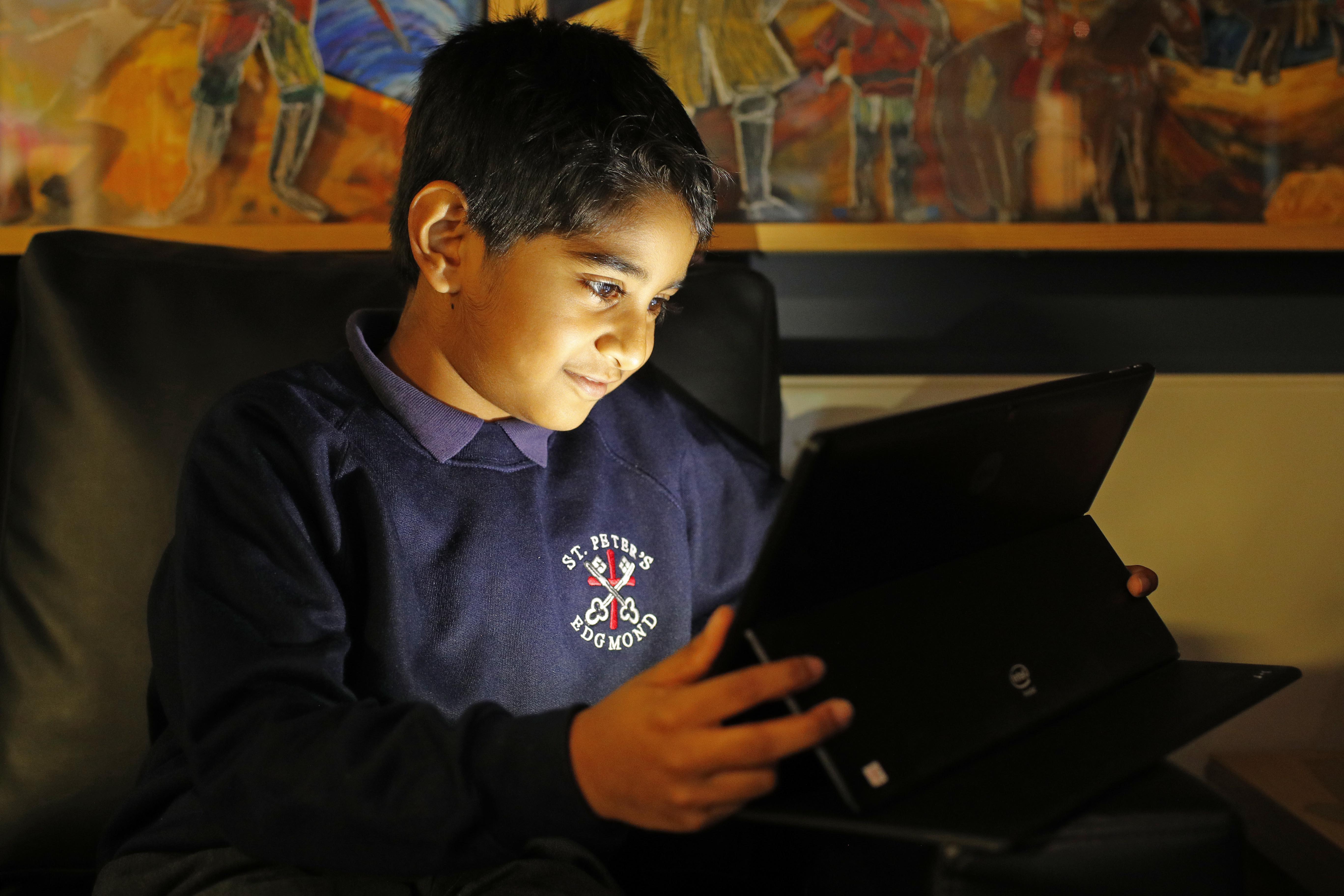Computing
Intent
At St Peter’s, we recognise that computing is an increasing part of life today. It is, therefore, essential that all pupils gain the confidence and ability in computing to prepare them for the challenge of a developing and changing technological world.
It is our intention to enable children to find, explore, analyse, exchange and present information. Our curriculum will teach children key knowledge about how computers and computer systems work, and how they are designed and programmed. Our children will gain key knowledge and skills in the three main areas of the computing curriculum: computer science (programming and understanding how digital systems work), information technology (using computer systems to store, retrieve and send information) and digital literacy (evaluating digital content and using technology safely and respectfully). Our children will know more, remember more and understand more in computing so that they leave primary school computer literate. By teaching them the knowledge of computing, children will then gain the skills to demonstrate a deeper understanding of our digital world.
E-safety is a key focus of our curriculum. Here at St Peter’s, we ensure our children are taught the importance of safer internet use (at home and at school) during computing lessons and as part of the wider curriculum using a whole school approach. Within computing we also teach children the skills they need to be able to question what they see on the internet so that they can make their own, informed, judgements.
Implementation
At St. Peter’s we follow the Teach Computing Curriculum (teachcomputing.org). This is a clear and effective scheme of work that provides coverage in line with the National Curriculum. This scheme facilitates progression across all key stages within the strands of digital literacy, information technology and computer science.
Children have access to the hardware (computers and programmable equipment) and software that they need to develop knowledge and skills of digital systems and their applications.
As well as opportunities underpinned within the scheme of work, children also spend time further exploring the key issues associated with digital communication; cyberbullying, online safety, security, plagiarism and social media. Tailored lessons and assemblies also enforce the rules of being safe online through use of the Project Evolve resources (Education for a connected World framework). Project Evolve is a digital education toolkit which prepares learners for the digital world. Every half term we focus on one of the eight strands from the framework: Self-image and Identity, Managing Online Information, Online Relationships, Health, Well-being and Lifestyle, Online Reputation, Privacy & Security, Online Bullying and Copyright and Ownership. A ‘Safer Internet’ focus day is held each year in February where we have a whole school assembly and individual lessons within each class across school.
Impact
Children at St Peter’s are confident users of technology, able to use it to accomplish a wide variety of goals both at home and in school. They are equipped with the knowledge and skills to stay safe online and be aware of online safety and the impact this has on their daily lives. Our computing curriculum builds on previous learning to ensure children have a depth of knowledge and are able to develop progression in skills and vocabulary. This sequence enables children to create secure foundations for subsequent learning. Clear progression enables our children to know more and remember more and therefore be able to apply their knowledge in new and varied contexts.

